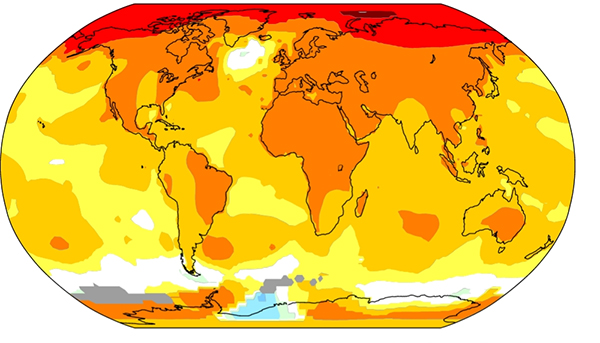LSE comments on IPCC report: Dr Swenja Surminksi and Bob Ward

The following comments were made in response to the IPCC’s Working Group II report on Climate Change Impacts, Adaptation and Vulnerability, published today (28 February 2022):
Dr Swenja Surminski, head of adaptation research at LSE’s Grantham Research Institute on Climate Change and the Environment was a contributor to the report. She said:
“The new IPCC report underlines the scale of the challenge we are facing: investing in adaptation and resilience is crucial, and it needs to happen now. Every dollar invested in adaptation today will save at least five dollars’ worth of loss and damage in future. Adaptation is not a cost. It is an investment. Right now, we still have an opportunity to adapt to the coming climate impacts.
“But we still see decisions being made today by governments, businesses, investors that completely disregard current and future climate risks. We need to be smart and take climate change into account when we decide where and how we build, how we design products and infrastructure, and how to develop resilient food systems and supply chains. There are some encouraging examples but overall adaptation investment is still lagging, and climate risks are ignored, or seen as something in the distant future. The IPCC report makes it clear that inaction is a bad strategy. And it shows that we have solid knowledge and information to inform today’s decisions.”
Bob Ward, policy and communications director at LSE’s Grantham Research Institute on Climate Change and the Environment, was a reviewer on the new IPCC report, a co-author of work cited by the report, and attended the approval plenary session over the past two weeks as an observer. He said:
“This report presents a shocking catalogue of the already significant and growing harm to lives and livelihoods across the world from climate change impacts, such as more intense and frequent floods, droughts and heatwaves. These impacts will continue to increase for many more decades until global emissions of greenhouse gases are effectively reduced to zero.
“One disappointing aspect of the report’s Summary for Policymakers is the weakness of the paragraph on global economic costs (SPM.B.4.6). It does not offer any qualitative or quantitative estimate of the global impacts, due to the deficiencies of the underlying literature. Too many economists have been churning out unreliable estimates from models that are simply not fit for purpose and often omit the largest potential impacts of climate change. Indeed one of the leading economists has recently suggested that a warming of 3 Celsius degrees by the end of this century would be “optimal”, even though it would result in a global average temperature that has not occurred on Earth since the Pliocene Epoch about 3 million years ago when global sea level was 5 to 25 metres higher than today.”
Every dollar invested in climate adaptation saves five in the future | LSE Research
This video produced to coincide with the publication of the IPCC’s Working Group II report on Climate Change Impacts, Adaptation and Vulnerability outlines some the key takeaways in relation to adaptation.

